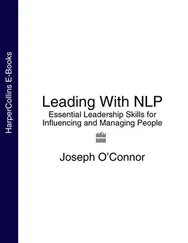John Gray - Children Are from Heaven - Positive Parenting Skills for Raising Cooperative, Confident, and Compassionate Children
Здесь есть возможность читать онлайн «John Gray - Children Are from Heaven - Positive Parenting Skills for Raising Cooperative, Confident, and Compassionate Children» весь текст электронной книги совершенно бесплатно (целиком полную версию без сокращений). В некоторых случаях можно слушать аудио, скачать через торрент в формате fb2 и присутствует краткое содержание. Год выпуска: 1999, ISBN: 1999, Издательство: HarperCollins e-books, Жанр: psy_childs, sci_pedagogy, Психология, на английском языке. Описание произведения, (предисловие) а так же отзывы посетителей доступны на портале библиотеки ЛибКат.
- Название:Children Are from Heaven: Positive Parenting Skills for Raising Cooperative, Confident, and Compassionate Children
- Автор:
- Издательство:HarperCollins e-books
- Жанр:
- Год:1999
- ISBN:978-0-06-133886-1
- Рейтинг книги:4 / 5. Голосов: 1
-
Избранное:Добавить в избранное
- Отзывы:
-
Ваша оценка:
- 80
- 1
- 2
- 3
- 4
- 5
Children Are from Heaven: Positive Parenting Skills for Raising Cooperative, Confident, and Compassionate Children: краткое содержание, описание и аннотация
Предлагаем к чтению аннотацию, описание, краткое содержание или предисловие (зависит от того, что написал сам автор книги «Children Are from Heaven: Positive Parenting Skills for Raising Cooperative, Confident, and Compassionate Children»). Если вы не нашли необходимую информацию о книге — напишите в комментариях, мы постараемся отыскать её.
Children Are from Heaven: Positive Parenting Skills for Raising Cooperative, Confident, and Compassionate Children — читать онлайн бесплатно полную книгу (весь текст) целиком
Ниже представлен текст книги, разбитый по страницам. Система сохранения места последней прочитанной страницы, позволяет с удобством читать онлайн бесплатно книгу «Children Are from Heaven: Positive Parenting Skills for Raising Cooperative, Confident, and Compassionate Children», без необходимости каждый раз заново искать на чём Вы остановились. Поставьте закладку, и сможете в любой момент перейти на страницу, на которой закончили чтение.
Интервал:
Закладка:
“I want” statements minimize resistance
by reminding the active child that you are
the boss.
When out of control, unless they get everything their way, they will tend to bully others or throw big tantrums. Many parents and adults are afraid to confront this kind of child.
Parents put off confrontations because they require so much energy. This just makes the problem worse. Besides clear structure, these children need the structure of regular time outs.
They need to feel contained more than other children do. By giving these children regular time outs, they will remember who is boss and get the structure they need. We will explore how to give time outs in greater detail in Chapter 6.
Active children have a greater need to be right and hate being told they are wrong. It is particularly difficult for them to receive corrective feedback in front of others. If feedback is given privately, they resist less and don’t become defensive. Instead of correcting them publicly, you can create secret signals to give feedback. They greatly appreciate a parent who will help them to save face.
For example, you could let the child know to be gentler by pulling on your own ear. When they start getting too loud, you could touch your chin to let the child know he or she is using their outside voice while indoors. These children appreciate these signals. It not only helps them be more successful, but it also indirectly acknowledges that it is normal to make mistakes and occasionally go out of control.
Unless given a role of responsibility, they will tend to resist other children or people who move more slowly. They want things fast and have the energy to get them fast. They can best accept the slower pace of others when they are busy doing a job to help or assist in some way. It is even fine to make up activities and give them a sense of importance.
When these children get the structure they need automatically, they become more sensitive, compassionate, and generous. With regular time outs, they gradually learn to be more patient and develop the ability to delay gratification.
They become responsible, competent, and make great leaders. They make things happen. Over time, as they feel more successful and confident in themselves, they become more sensitive in understanding others’ feelings.
Responsive Children Need Distraction and Direction
The third temperament is responsive. Responsive children are social and outgoing. They develop a sense of self from their responses to the world and their relationships.
They are self-motivated to see, hear, taste, and experience everything life has to offer. They have many interests, because they have a greater need for stimulation.
Each new experience brings out a new part of themselves. They come alive in response to new input. Although these children like change, they resist having to focus. They often throw tantrums when being asked to put on a coat or do something in a particular way. They have a greater need for freedom to do their own thing.
Often they don’t complete things and just move from one experience to another. It is important for parents to understand this and not worry. This child needs to move around. Chaos is a part of their learning process. Later in life, if they have the freedom to explore, change, and be themselves, they will become more focused and will learn to go deeper into things and complete tasks.
Responsive children naturally move from one activity to another like a butterfly. They need time to explore, experience, and discover life. They are so easily distracted that they need a lot of direction about what to do. When they forget your instructions, they are not trying to annoy or resist you. They have really forgotten. They should never be shamed for this tendency. Gradually they will learn how to stay focused. They are easily distracted by new opportunities. This tendency to be distracted can actually be used to minimize their resistance.
Responsive children know themselves by
reacting to life’s different experiences.
When resistant to your requests, responsive children simply need to be redirected to another possibility, a new activity, or a different opportunity for experience. Instead of understanding or structure, this child needs to be distracted and then redirected. With distraction, another part of them emerges that is willing to be cooperative. Let’s explore a few examples.
When throwing a tantrum, children up to about age three can be easily distracted and then redirected by pulling out pretty, shining objects, keys, a toothbrush, little shells, a crystal, or anything interesting to see, hear, taste, touch, or play with. My wife, Bonnie, used to always carry a selection of little “things” to distract a child from becoming upset or throwing a tantrum. While this works for all children, it works especially well for this responsive child.
THE GIFT OF SINGING
The activity of singing will distract many children of all ages from what is bothering them and redirect them to feeling loved and supported. Children love when you sing to them and with them as they get older. My wife, Bonnie, created a special little song for each of our children. When they would cry, we could just sing the song and they would feel peaceful again.
As an example of how to do this, I include one of these songs:
Lauren Beth, Lauren Beth, how I love my Lauren Beth.
Lauren Beth, Lauren Beth, how I love my Lauren Beth.
Lauren, Lauren, Lauren Beth . . . (and then it repeats)
When children are distressed, a simple song used over and over will distract them from their troubles and redirect them back to feeling loved and comforted. Singing a song is better than listening to music, because singing actually connects the child more to the parent, although using music in the background to create a more relaxing or happy environment can still be very helpful.
Singing has less gravity or heaviness than the spoken word. It helps to redirect a child from focusing on something that isn’t pleasing to something that is. It is ideal for distracting a child and redirecting her to do what you want. You can’t stay frustrated and sing at the same time. Singing and listening to song lightens things up and makes life more fun.
It stimulates more creative right brain activity. Creativity makes a child more fluid and flexible to situations as well as more cooperative.
When my children were growing up, we used to sing a song while we all washed the dishes together. I called it the five-minute cleanup. I would sing a particular song while we would race to see how much we could get done in five minutes. Afterward, I would acknowledge them for their help and finish up myself. They loved it and still remember it today as a fun and happy experience.
MAKING CHORES FUN
By singing with my children, they were distracted from the drudgery of doing dishes. Also, by limiting their participation to five minutes, they didn’t feel burdened. By making sure they didn’t have to work too hard at a young age, they didn’t resist helping out. As adults, they now are happy to work hard, and they know how to have fun as well.
I can still remember, as a child growing up in a family of seven children, my night to do the dishes. It didn’t matter that I only did them once a week. On my night, the feeling I had was, “I always do the dishes. I never get to have fun. Everyone else is having fun and I am missing out.”
Children live in the eternal now. When a chore takes too long, it feels like, “Work is all we ever do.” By making chores easier and helping your children more, they will learn first how to have fun, and then later in life, as teenagers, schoolwork will be more enjoyable.
Читать дальшеИнтервал:
Закладка:
Похожие книги на «Children Are from Heaven: Positive Parenting Skills for Raising Cooperative, Confident, and Compassionate Children»
Представляем Вашему вниманию похожие книги на «Children Are from Heaven: Positive Parenting Skills for Raising Cooperative, Confident, and Compassionate Children» списком для выбора. Мы отобрали схожую по названию и смыслу литературу в надежде предоставить читателям больше вариантов отыскать новые, интересные, ещё непрочитанные произведения.
Обсуждение, отзывы о книге «Children Are from Heaven: Positive Parenting Skills for Raising Cooperative, Confident, and Compassionate Children» и просто собственные мнения читателей. Оставьте ваши комментарии, напишите, что Вы думаете о произведении, его смысле или главных героях. Укажите что конкретно понравилось, а что нет, и почему Вы так считаете.












